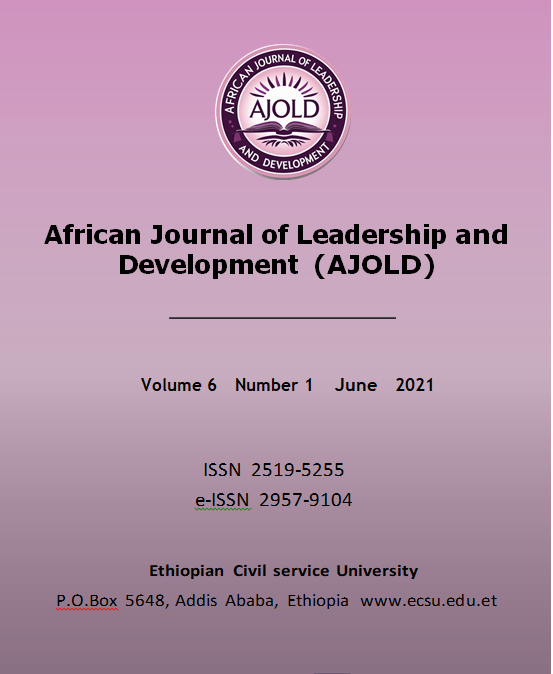The State of Employee Commitment to Organizational Goals in Addis Ababa City Administration
DOI:
https://doi.org/10.63990/2021ajoldvol6iss1pp29-46Keywords:
Employee Commitment, Employee Engagement, Employee Satisfaction, Role of LeadershipAbstract
The state of employee commitment is a multi-dimensional individual's psychological attachment to an organization. Hence, the study aims at examining the state of employee commitment to organizational goals using the components of Tri-Dia-Model of Employee Commitment Employee engagement, employee job satisfaction and transformational leadership were also used as a common denominator to check the interface between employee commitment and organizational effectiveness. Descriptive and explanatory research types were employed and 400 samples were used. Primary and secondary sources were used. Descriptive statistics, correlation, regression and content analysis were applied. The study concluded that, besides, the unnecessary political interference, employee commitment was very poor, employee disengagement was common and therefore employees were dissatisfied, meanwhile role of leadership to ensure employee commitment was still poor. Therefore, the city administration should have to take a remedial action to control unnecessary political interference and the dyadic leadership style to promote employee commitment. The clear-cut separation of power between party politics and government bureaucracy must urgently be established. If not corrected, the status quo practices may, in addition to employee disengagement, dissatisfaction and poor commitment, jeopardize the organizational effectiveness of the city as well as that of the country.
Downloads
Published
How to Cite
Issue
Section
License
This work is licensed under a Creative Commons Attribution-NonCommercial 4.0 International License






